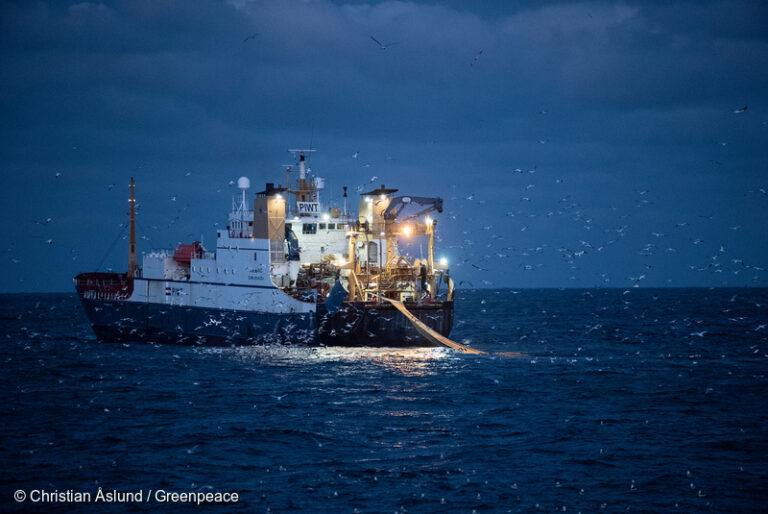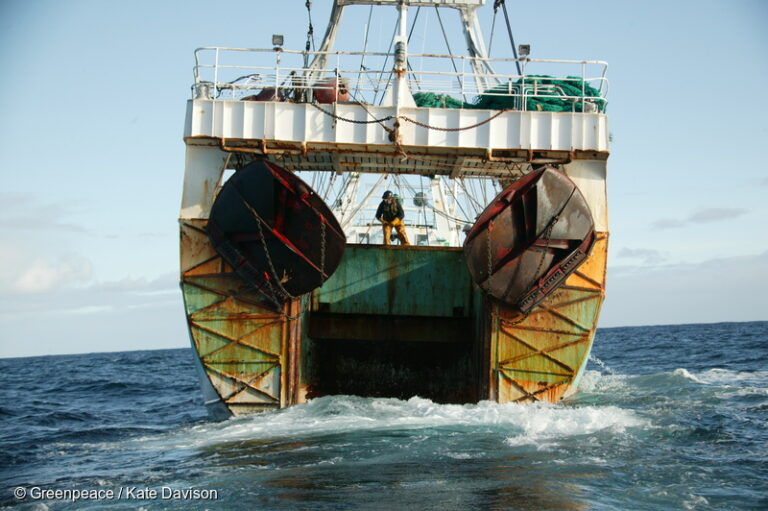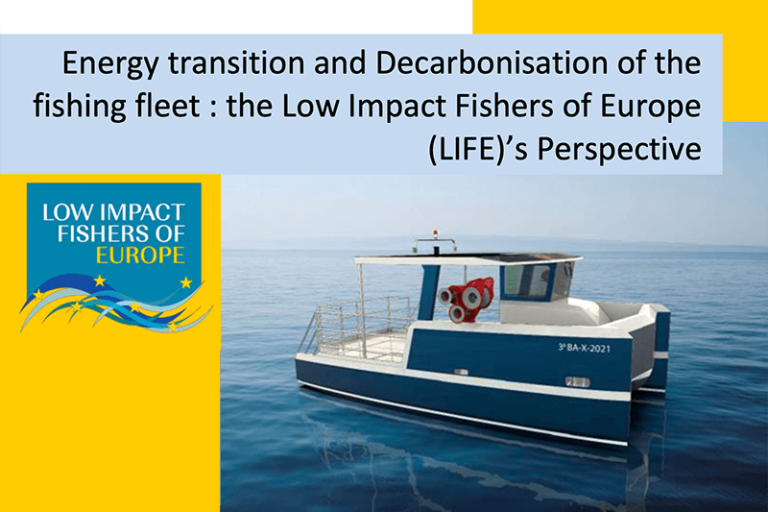Check out our recent webinar: Decarbonising the EU Fishing Sector: the Path Ahead
We are in the midst of a climate crisis, with the effects of rising temperatures – due to climate change – now making themselves known everywhere. At the same time, we are facing a major biodiversity crisis, which hugely impacts the marine environment and the functioning of the ocean as a climate regulator. On top of these major crises, with the ongoing war in Ukraine, we also face an unprecedented energy challenge.
In order to overcome these challenges, at a political level, with the signature of the Paris Agreement and the adoption of the European Green Deal, the EU has agreed to transition to a sustainable Europe that will achieve carbon neutrality by 2050. Climate change objectives have been set in the EU Climate Law but in order to reach these, our societies need to start – or accelerate – the decarbonisation of all sectors of the economy, implementing the right incentives to drive decarbonisation.
Where do fisheries come into it?
The vital decarbonisation process of the EU fishing sector will need to take into account the impacts of fishing activities on stocks, the wider marine environment and the ocean. We are in the midst of a twin crises of biodiversity and climate change – and overfishing is exacerbating both.
The current energy crisis also impacts the profitability of fishing activities, and is set to be a major driver of the decarbonisation of the fishing sector. Any social impacts of decarbonising will need to be assessed carefully in order to ensure that decarbonisation will also ensure the resilience of coastal communities and leave no one behind.
With these environmental and social priorities in mind, the decarbonisation process in the fisheries sector has already started, thanks to the publication by the European Commission of the Energy transition action plan in February 2023, and the launch of a stakeholder dialogue in June 2023. On November 28, 2023, the first stakeholder workshop took place in Brussels, which addressed the precise question of how the decarbonisation of the fisheries and aquaculture sector can be financed.
Given the context of the climate and biodiversity crises and the urgent need to change our whole economic model to one that is less polluting, and less resource and energy intensive, including in the fisheries sector, stakeholders need a roadmap with milestones and targets from the European Commission to design the way forward as well as guidelines on financial opportunities to fund the transition. Financing decarbonisation should be done so that it underpins and supports the achievement of the targets of the decarbonisation roadmap – otherwise it will only be a race for more funding with no precise priorities and purpose. We do not want to put the cart before the horse.
The Path to Decarbonisation
During our November 23rd webinar on the path to decarbonisation, speakers from NGOs, research institutions and the Low Impact of Fishers of Europe called for a new vision for the EU fisheries sector. To implement this new vision, important changes are needed in many aspects of the sector as it exists now. Indeed, decarbonisation should progressively lead to greenhouse gas neutral fisheries that use less energy-intensive gears and less destructive fishing gears. Decarbonisation should go hand in hand with a transition towards low-impact fisheries, allowing the ocean and fish to play their role as climate regulators and natural carbon sinks and to thrive as part of an healthy marine ecosystem. Coastal communities would also benefit from the implementation of this vision, thanks to the sustainable activities of their local fishers but also thanks to the beauty of the marine environment they will feel responsible for, will protect, honour and valorise. Fisheries will primarily be dedicated to fish for human consumption and consumers will have learned to eat less but better seasonal fish that has been sustainably fished in EU waters.
Public funding for decarbonisation should support this new vision and should be allocated to fishing operators following environmental and social criteria.
During the webinar, some key points were highlighted:
- Decarbonisation should mean not just lower GHG emissions, but also fewer ecosystem impacts with precise environmental and social criteria for allocating public funding;
- Financial measures to decarbonise the fishing fleet will be more expensive and less effective unless fishing stocks are restored and unless subsidies in the form of fuel tax exemptions are removed
While decarbonisation of the EU fishing fleet will play a relatively small role in lowering overall global GHG emissions, it must go hand in hand with a more profound fisheries reform to establish a fit-for-purpose 21st century fisheries sector future proofed against global warming and associated climate change impacts, compatible with Blue/Green Economy development, supporting decent livelihoods and providing socio-economic benefits in coastal communities.
ClientEarth is concerned that the fisheries sector will use decarbonisation as a mere opportunity to request more funding, in particular for the building and acquisition of new fishing vessels – without having established a broader vision of what the future of fisheries and decarbonisation should look like. For a sector that is completely dependent on fish stocks which it has overfished for decades, it is important that the type of fishing, their broader impacts on the marine environment and the number of fishing vessels active are part of the decarbonisation equation.
Following the Roadmap
We believe the European Commission’s roadmap should lay out several phases of implementation and should start with the implementation of measures that can reduce fossil fuel consumption now, without requiring major investments or major changes in the structure of the fishing vessels such as measurement of fossil fuel consumption on board, use of battery for ancillary engines, additional propulsion systems such as wind propulsion, increased gear selectivity, and measures to reach more targeted fishing so that stocks are not depleted. Alongside these immediately available measures, training for fishers should be a priority for them to understand the role that they can play in driving decarbonisation.
The first discussions during the workshop on financing decarbonisation of the fisheries sector on November 28, organised by the European Commission, mainly revolved around the inbuilt financing limitations of the European Maritime Aquaculture and Fisheries Fund (EMFAF) that do not allow for construction of new fishing vessels. In our view, the question should rather revolve around the priorities of the energy transition to decide what should be financed with the available funds. It would also be good to identify what funding should be used for. During the workshop, we observed a lack of big-picture vision for the future of EU fisheries. Some nice projects were presented, but there was limited clarity on the path forward, and where we want to get to.
During the second part of the discussions, it became even more apparent that we cannot talk about medium- to long-term financing objectives without thinking about the fisheries sector that we want for Europe. Leading an energy transition means thinking about how we fish, what we fish, for whom, how we eat and who is at the core of these activities, from extraction of fish to processing and retailing of fish, as well as what is their environmental and social footprint. Designing a roadmap for the energy transition will require decision-makers and stakeholders to have this broader but essential discussion – and we are looking forward to the next steps of the process.
Flaminia Tacconi, Senior Lawyer at ClientEarth




